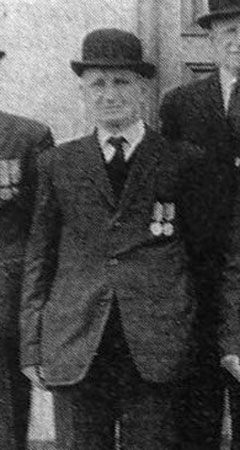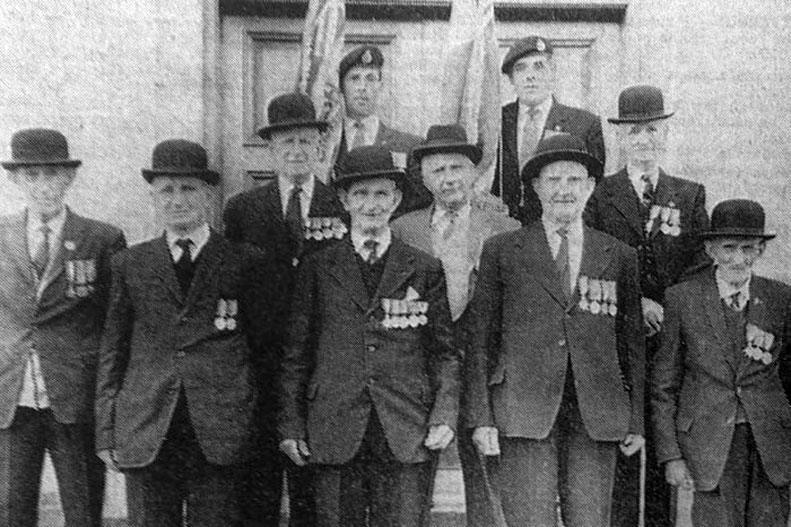Private William Jordan

William Jordan was born on 14 January 1900 at Moore Grange, Cookstown , County Tyrone, the seventh of eight children of labourer John Jordan and his wife Mary Ann (nee Robinson). By the time of the 1911 Census he was living at Coltrim, Moneymore, County Londonderry, with his parents and three siblings.
Jordan enlisted in the 10th (Service) Battalion, Royal Inniskilling Fusiliers, at the Finner Camp on 10 April 1915 (No.21090). He claimed he was a labourer and aged 19, four years more than his true age. Soon after, he was transferred to the 12th (Reserve) Battalion.
On 23 September 1915 Jordan was awarded 15 days' Field Punishment No.1 and forfeited 6 days' pay, probably for being absent. The following month he received another 21 days' Field Punishment No.1, and on 10 August 1916 he lost another 10 days' pay. Seven days later he was discharged, "having made a mis-statement as to age on enlistment". His character was recorded as 'fair'.
Jordan enlisted in the North Irish Horse in 1917 (regimental number unknown at present). On 5 January 1918 the Mid-Ulster Mail reported:
James Bell, water bailiff, Moneymore, charged Trooper Wm. Jordan, N.I.H., of Doneybraggy, with assault on 7th December. Complainant said the defendant was with an escort at the time, and called complainant over to say good-bye. Bell went over with outstretched hand, when Jordan struck him a violent blow on the eye. Mr. Andrew King said the Court should know that Jordan, who was an absentee from the army at the time, was convicted on Bell's evidence and fined for poaching. Pretending a forgiving spirit, Jordan induced Bell over to him to say good-bye, and then treacherously struck him. A fine of 10s and costs was imposed by a majority.
Jordan did not see any service overseas, and was probably discharged in 1919.
All his three brothers served in the war, in the Royal Inniskilling Fusiliers. John Jordan was killed in action on 14 May 1915; Duncan was wounded in the thigh in early 1916, and David was made a prisoner of war at St Quentin on 21 March 1918.

John Jordan, Royal Inniskilling Fusiliers
After the war Jordan returned to the Cookstown district and worked as a farm labourer. In 1921 he and his brother Duncan were among six 'B' Specials arrested in connection with the murder of Joseph Hayden of Gortfad Glebe, Cookstown and the wounding of his brother James on the night of 18/19 May that year. All were charged with murder. I have not yet tracked the outcome of the trial.

Cookstown veterans who attended a review by her Majesty the Queen at Balmoral on 4 July 1966 to mark the 50th anniversary of the Battle of the Somme. William Jordan is second from left, his brother Duncan is next to him (front row centre), and his brother David next to Duncan.
Images sourced from Cookstown War Dead website.
